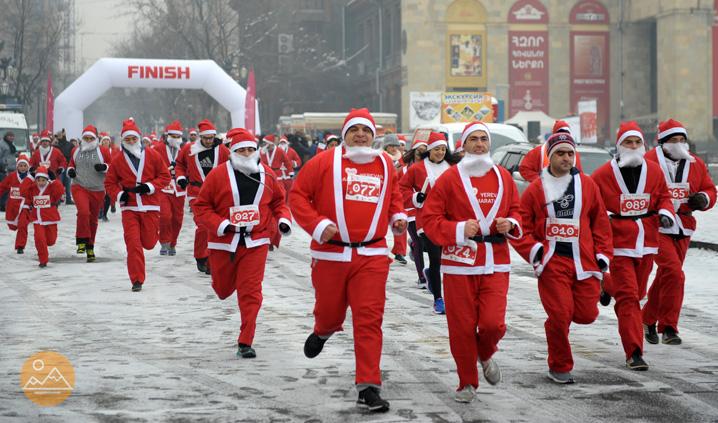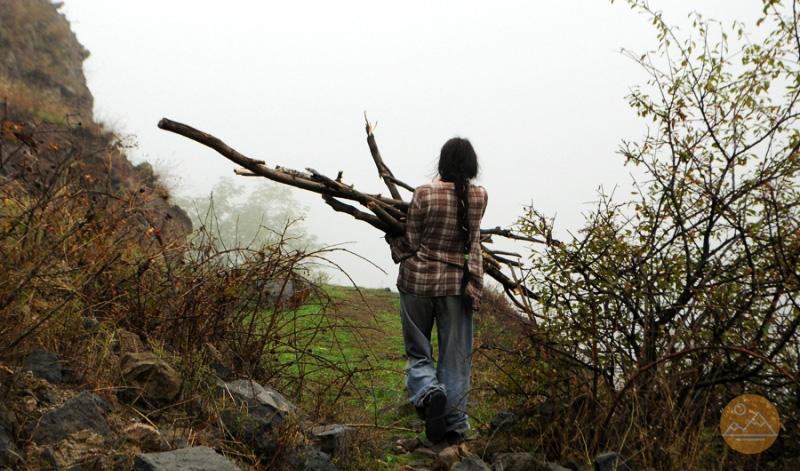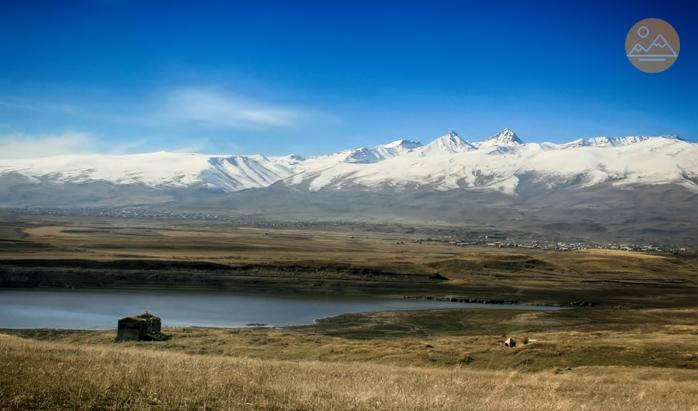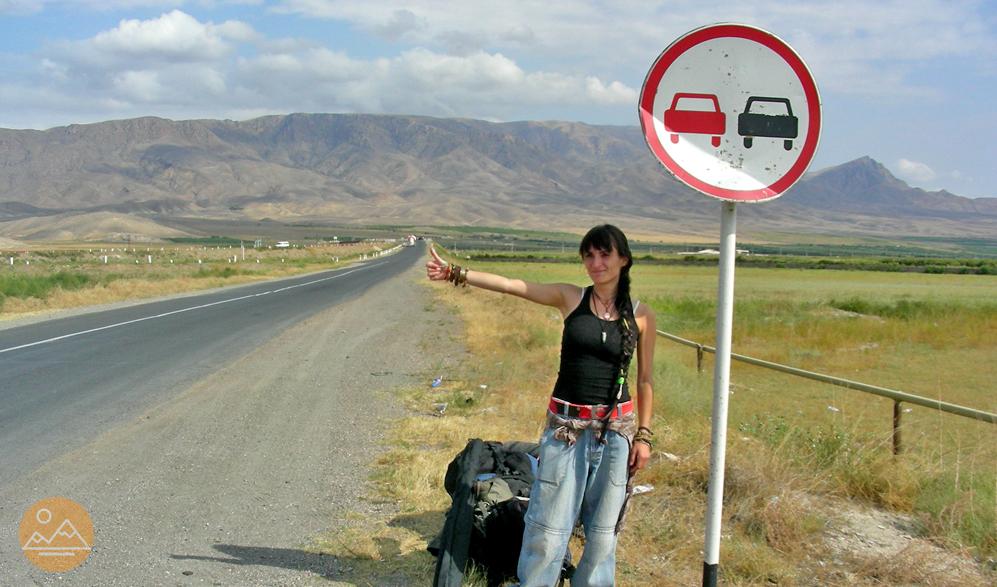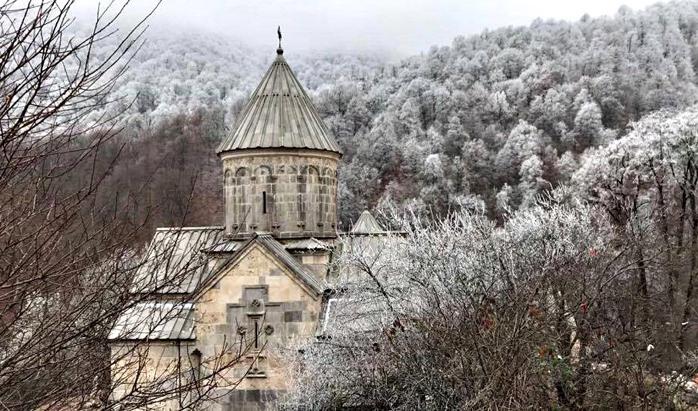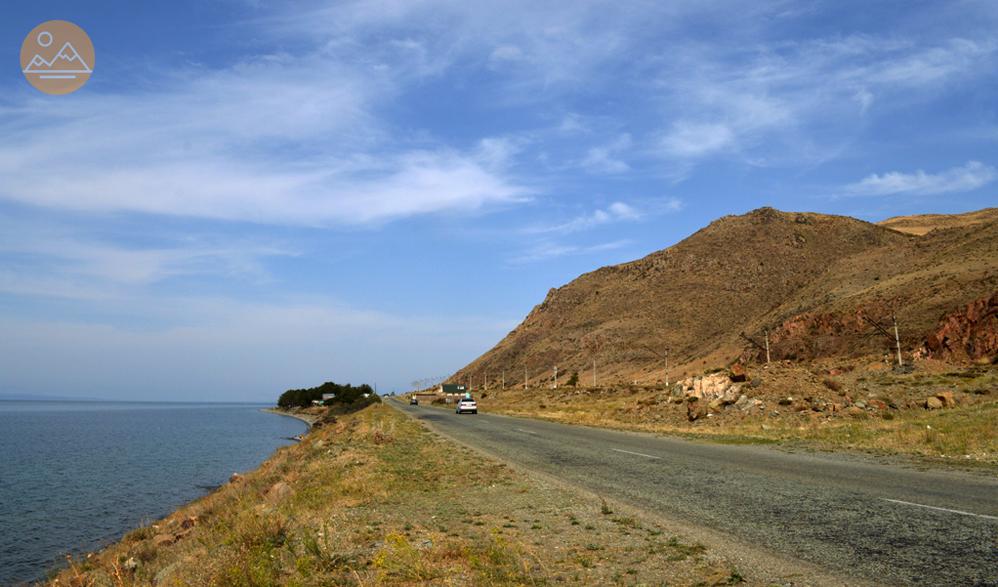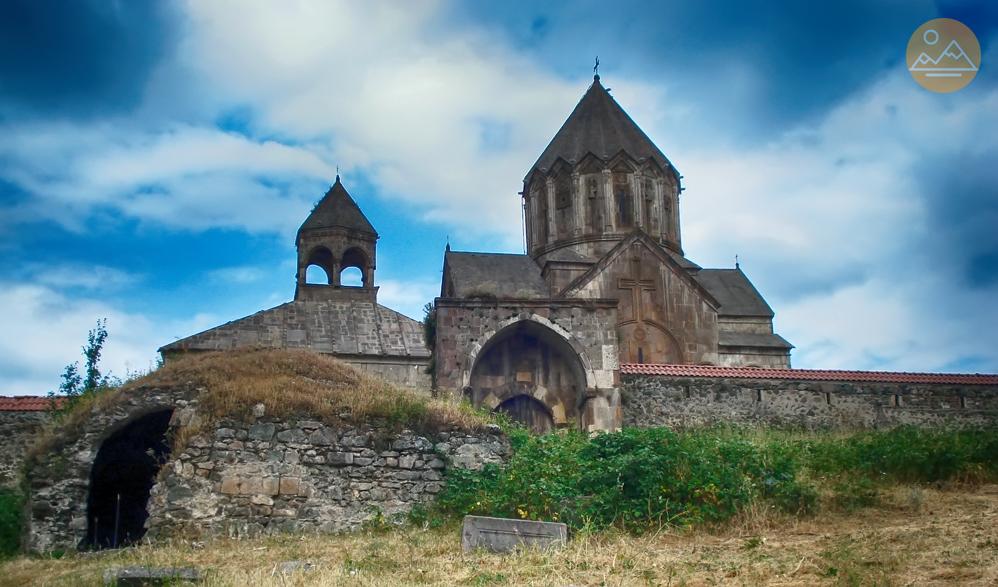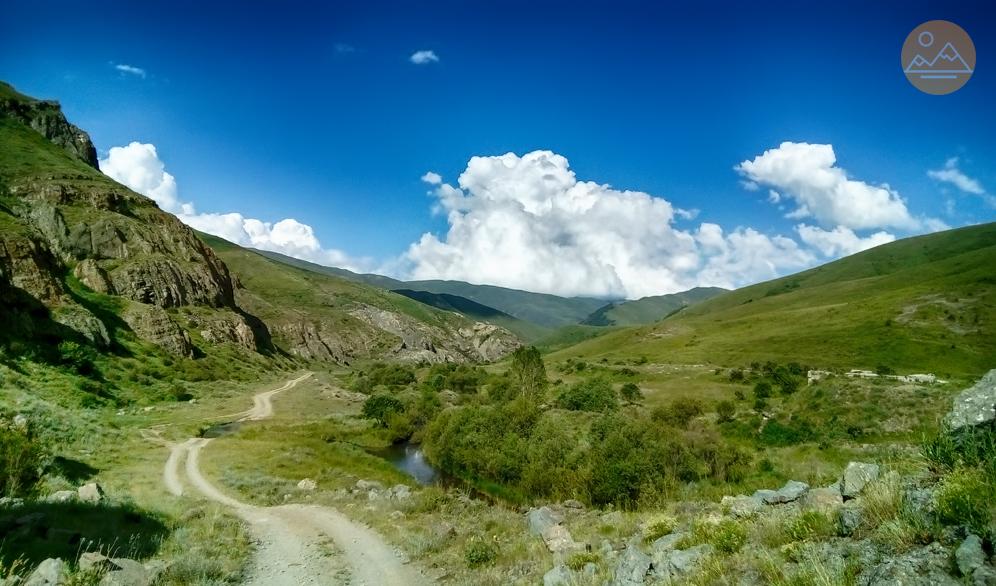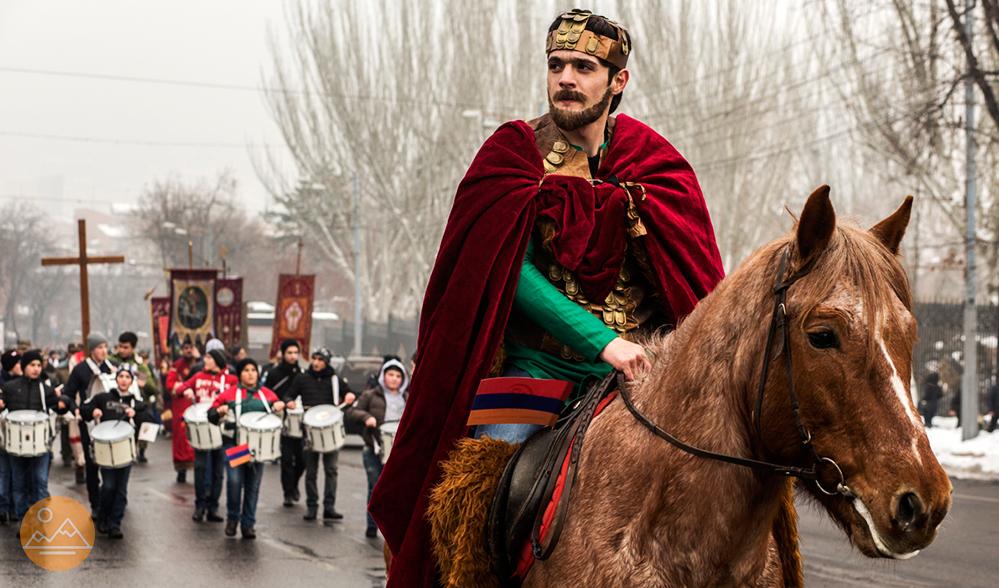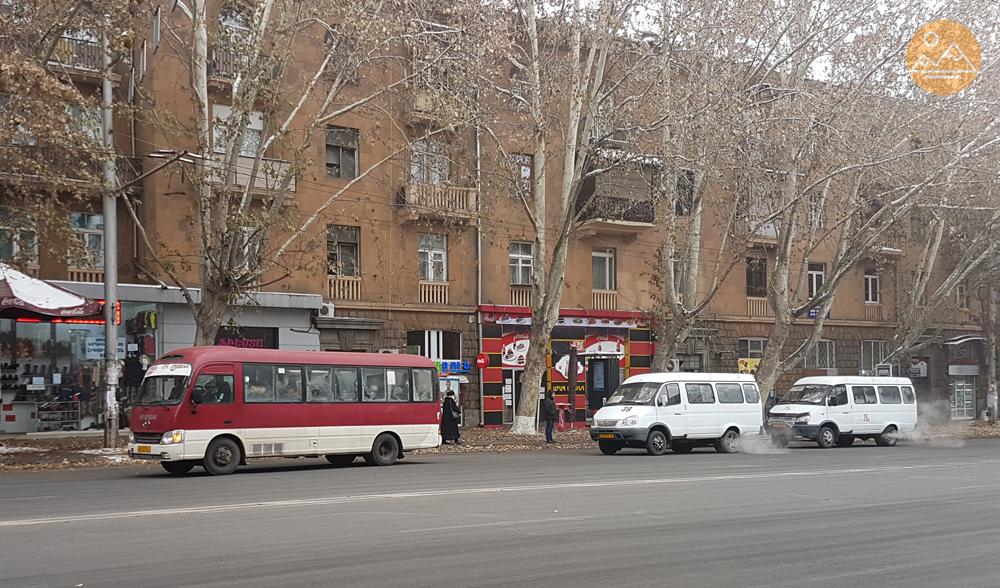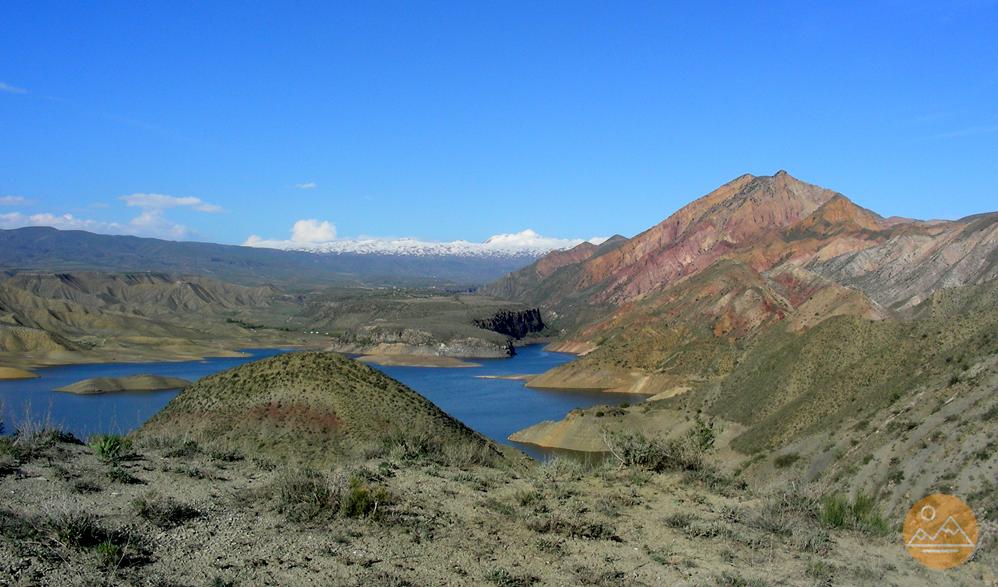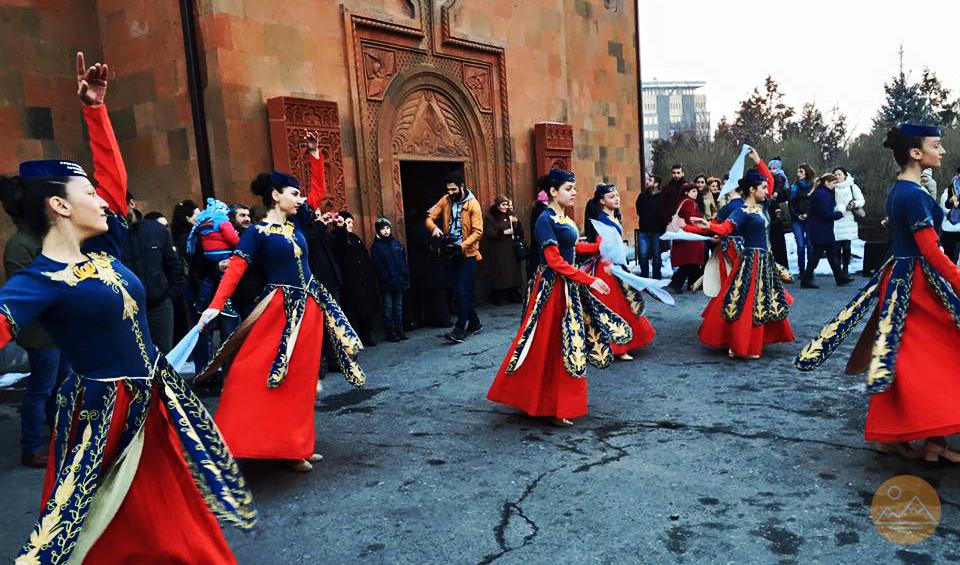-
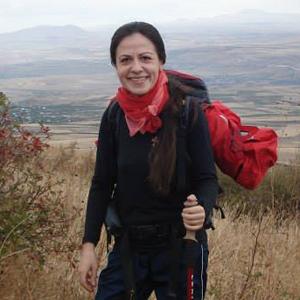 Lilit Grigoryan
Lilit Grigoryan
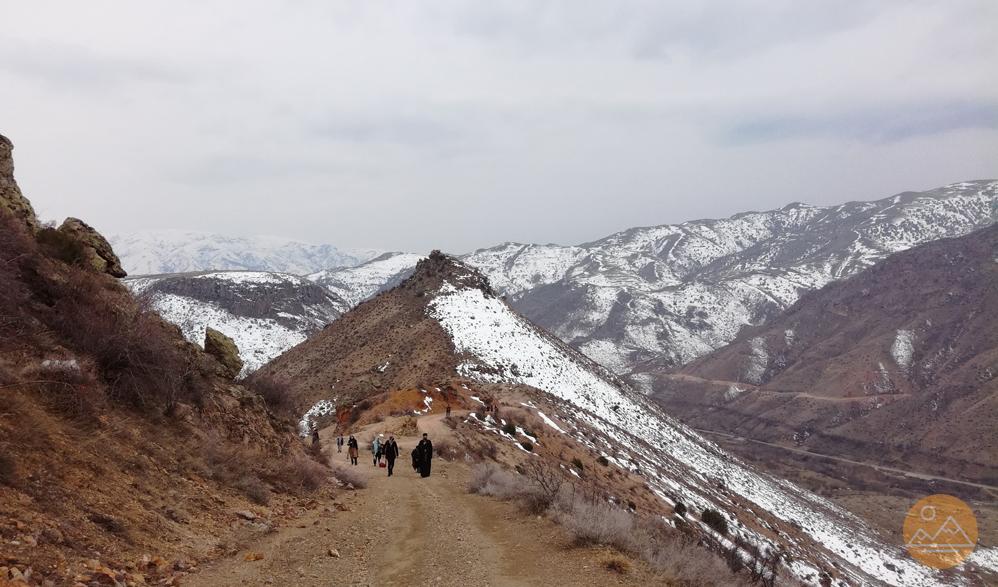
Hiking to Shativank monastery, Armenia / Photo: Lilit Grigoryan
Pilgrimage to Shativank monastery – a mesmerizing aria of jackals’ howl and spiritual songs
Views - 2509
It all started with a call to deacon David of the Mother See Holy Etchmiadzin Cathedral. I knew that he was organizing pilgrimage tours on Saturdays, especially during the Great Lent, so I asked him if he had planned tours. He told me about the pilgrimage to Shativank – a monastery I’ve visited four years ago and wanted to travel to the site ever since.
Famous for its strict rules, the Shativank monastery was founded in 929 AD. Its main church – the three-nave basilica of Saint Sion is the only standing structure of the complex today; the church was rebuilt in 1665 AD. In the old days, the monastery also consisted of a mill and an oil press.
Shativank is located about 4 km east of the Shatin village in the Vayots Dzor province of Armenia. Deacon David chose an easier path so that everyone in our group gets to the monastery. The path ran through the mountains, and the nature was changing, with snow on higher altitudes.
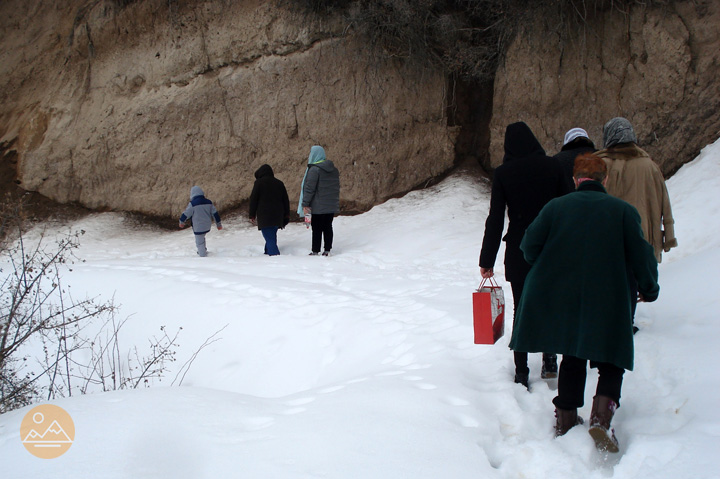
Hiking to Shativank monastery through snow / Photo: Lilit Grigoryan
After walking for 2 hours, we reached a narrow snowy path with a canyon on its left, which led to the monastery. As we walked further, the level of snow only increased, making it very difficult for people to hike. And by the time we reached the Shativank monastery, it was already 3 PM. Our feet were wet, we were tired and cold.
Father Minas and deacon David began to serve a divine liturgy in the abandoned monastery, where no liturgy was served for many a year. The liturgy lasted for an hour and a half, after which Armen, a pilgrim in our group, started a bonfire from branches and thorns.
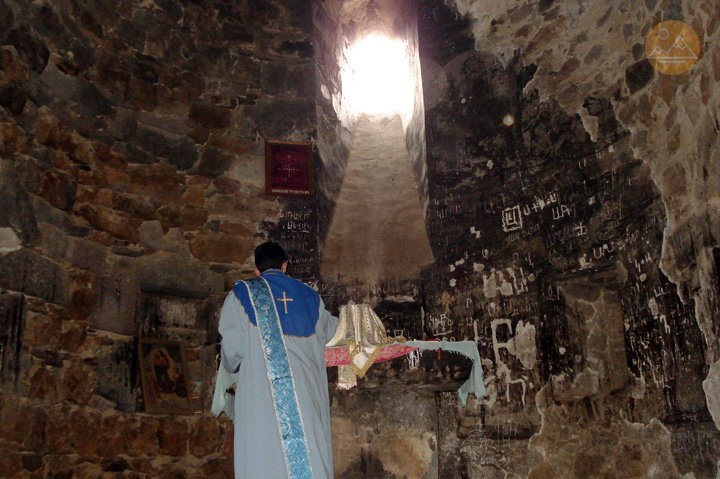
Divine liturgy at Shativank monastery / Photo: Lilit Grigoryan
It was around 6 PM when we left the Shativank monastery and took the road back. We wanted to reach the village before dark, so we decided to take the shorter path. But no one knew what challenges were ahead! We descended into the canyon to walk along the river. At times, it was difficult to go forward, but moved slowly, helping each other all the way.
Some of the group members led by the deacon David were way ahead, while four of us, including myself, were still making our way through the snow. Me and Armen were helping two women, and we naturally fell behind. Suddenly, David appeared from nowhere – he was worried about us and decided to return and help us. Now that he was with us, I hurried to join the others, looking for the path intuitively.
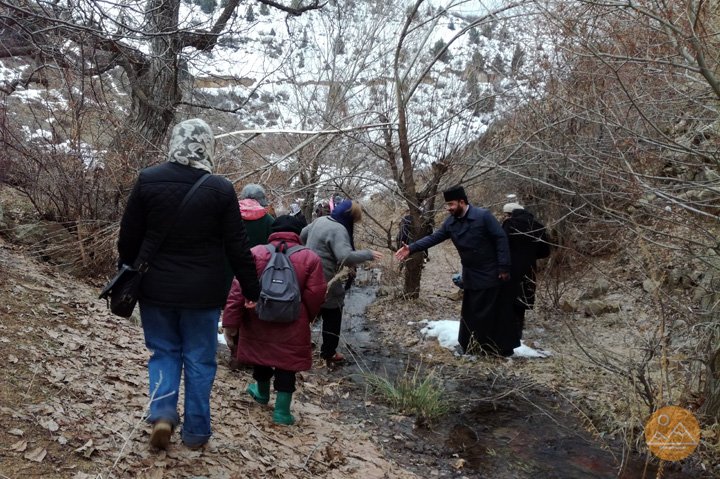
Pilgrimage to Shativank monastery / Photo: Lilit Grigoryan
Climbing up a hill to look around, we noticed footprints of people who must have walked here a few days earlier, and so we followed them. It was getting darker, but there was enough time to reach the village. Then it started raining. The path became more dangerous and slippery.
It was almost dark, when we finally reached the power tower above the village. Deacon David and three others were still far behind. As there was no light, I decided to walk down to the village to ask for help, or at least, borrow a flashlight. A teenager I came across at the very first house took a flashlight and ran to the power tower. Then in the darkness, we heard the jackals’ howl above the hill. The howl was getting closer, and closer. It seemed like the jackals were hunting, but did not dare to attack a group of people.
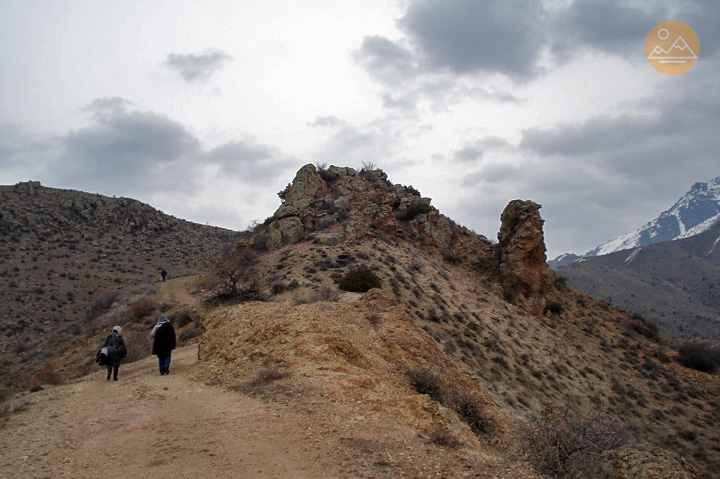
The hiking trail to Shativank monastery / Photo: Lilit Grigoryan
The presence of the wild hunters made us nervous for deacon David and others. But now that our phones had reception, we called them and found out that they’re approaching us. As we will learn later, the jackals were just in front of David and the others. It rained heavier, but none of us cared. Then, in the distance, we heard the voice of deacon David – he was singing spiritual songs, those songs that people sing during pilgrimages. And accompanying his voice, was the dismal howling of the jackals. Truly, a mysterious, yet powerful moment, which filled the air with strong vibes!
Later that evening, we were sitting in the minibus that was taking us from Shatin to Yerevan – all safe and sound. Back in the city, just before getting off the bus, a woman from our group thanked everyone, adding in the end: “It was a wonderful aria of deacon David’s spiritual singing and the jackals’ howl.”
